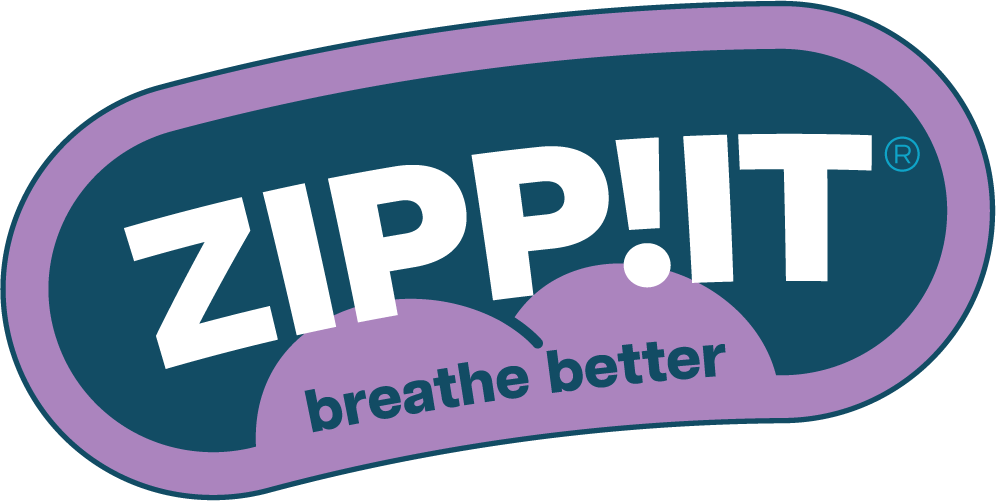Nasal breathing and its impact on your health and wellbeing
Breathing through your nose has a greater effect on your health than you might think.
Many of us unconsciously breathe through our mouths during exertion, stress, or at night. However, our bodies are actually designed to breathe through the nose. This natural method offers countless health benefits that go beyond simply taking in oxygen. In this article, you’ll discover why nasal breathing is so important and how you can apply it in your daily life.

The Science Behind Nasal Breathing and Its Health Benefits
Your nose is actually an advanced filtration system that cleans, warms, and humidifies air before it reaches your lungs. Research shows that nasal breathing stimulates the production of nitric oxide—a substance that dilates blood vessels and ensures better oxygen absorption.
The benefits of nasal breathing are scientifically proven:
-
Improved air filtration: Nasal hairs and mucous membranes capture up to 80% of harmful particles
-
Optimal oxygen absorption: Nitric oxide enables better oxygen uptake and more energy
-
Strengthened immune system: Nasal mucosa neutralizes bacteria and viruses
-
Enhanced brain activity: Studies show positive effects on cognitive functions
-
Better temperature and humidity regulation: The nose warms and humidifies inhaled air
Although the benefits are clear, many people unconsciously breathe through their mouths. This can lead to a dry mouth, bad breath, reduced oxygen absorption, and even changes in facial structure in growing children.
The Relationship Between Nasal Breathing and Sleep Quality
Sleep experts emphasize that nasal breathing during the night is essential for restorative sleep. With mouth breathing, your breathing becomes more shallow and irregular, leading to snoring and possibly sleep apnea.
Breathing through your nose while sleeping offers these benefits:
-
Reduced snoring: By 50-80% with regular practice
-
Lower risk of sleep apnea: Due to more stable airflow
-
Deeper sleep: More time spent in restorative deep sleep phases
-
Fewer awakenings: On average 30% fewer nighttime interruptions
-
Fresher awakening: Less chance of a dry mouth and throat in the morning
For those who struggle with nasal breathing during sleep, there are handy aids. Nasal strips widen the nasal passages and improve airflow. Mouth tape can also be effective—it gently seals your mouth, causing you to breathe through your nose automatically. Although the idea of tape on your mouth may sound strange, users often report significant improvements in sleep quality and energy.
Practical Techniques to Improve Your Nasal Breathing
Switching to full nasal breathing requires training, especially if you’re used to breathing through your mouth. Try these effective techniques:
-
Conscious breathing exercises: Take one minute every hour for slow, deep nasal breathing
-
The 4-7-8 technique: Inhale through your nose for 4 seconds, hold for 7 seconds, and exhale through your mouth for 8 seconds
-
Alternate nostril breathing: This yogic technique opens both nasal passages
-
Nasal rinsing: A neti pot with saline solution cleanses the nasal passages
-
Taping techniques: A small piece of hypoallergenic tape placed vertically on the lips reminds you to breathe through your nose
Be patient—the transition to nasal breathing takes time. After several weeks of consistent practice, it becomes the natural way of breathing for many people. It’s also important to address underlying issues such as nasal polyps, a deviated septum, or allergies. If you experience frequent nasal congestion, it’s wise to consult a doctor.
Tools for Optimal Nasal Breathing
For extra support, various tools are available, especially useful at night when we have less control over our breathing.
Nasal strips are small plasters applied to the outside of the nose. They mechanically widen the nasal passages, making it easier to breathe through the nose. Studies show they can improve airflow by an average of 30%.
Mouth tape is ideal for those who unconsciously breathe through their mouths at night. This special tape is hypoallergenic, comfortable, and easy to use. It takes some getting used to, but most users report significant improvements in sleep quality and energy within a few nights.
For people with snoring problems, a combination of nasal strips and mouth tape can be particularly effective. Always choose high-quality products specifically designed for this purpose—never use regular adhesive tape or non-medical tape.

Start Improving Your Breathing Today
Now that you understand how important nasal breathing is, it’s time to take action. Start with small, achievable steps. Create moments where you consciously breathe through your nose and consider aids if you need extra support.
Consistency is the key to success. The results are worth it: more energy, better sleep, less snoring, and a stronger immune system. If you have specific health issues that hinder nasal breathing, consult a professional for personal advice.
The science is clear: nasal breathing is not a trend but an essential aspect of optimal health. By embracing this natural way of breathing, you make a choice that will positively influence your health and wellbeing.


